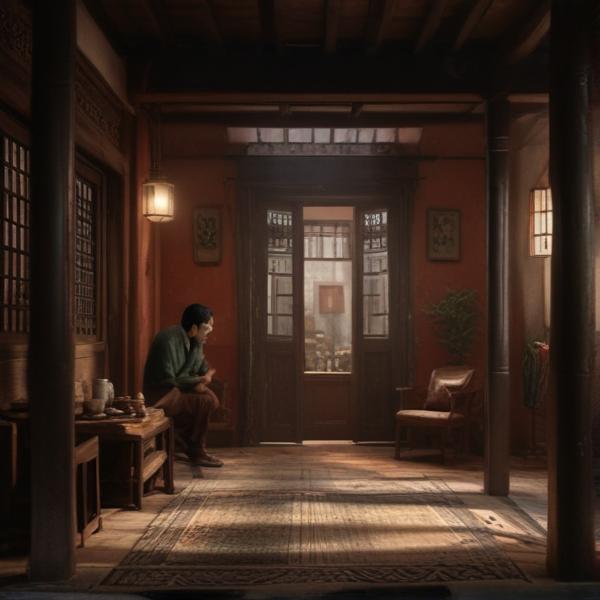基本信息 (Basic Information)
含义与用法 (Meanings & Usage)
中文核心释义 (Core Chinese Meaning): (名)兵器、武器;(名)战争、战斗;(动)依靠、倚仗。
英文核心释义 (Core English Meaning): Weapon; war or battle; to rely on or depend on.
象形意义 / 为何这么写 (Pictographic Meaning / Writing Rationale)
文言文释义 (Classical Chinese Meaning)
与现代意义相近,多用于指兵器、战争或依靠。Similar to modern meaning—mainly referring to weapons, war, or reliance.
深入学习 (In-depth Study)
字源故事 (Origin Story)
字形演变 (Character Evolution)
常用词语和例句 (Common Words & Examples)
打仗 (to go to war; to fight a battle)
他们正在前线打仗。
Eng: They are fighting at the front line.
仗义 (uphold justice; chivalrous)
他为人非常仗义,总是帮助弱小。
Eng: He is very chivalrous and always helps the weak.
仗势欺人 (to bully others by relying on one’s power)
我们不能仗势欺人。
Eng: We must not bully others by relying on our own power.
相关成语 (Related Idioms)
相关成语信息待补充。Related idiom information pending.
多语言翻译 (核心释义) (Translations (Core Meaning))
- French: arme ; bataille ; s'appuyer sur
- German: Waffe; Kampf; sich stützen auf
- Spanish: arma; batalla; depender de
- Italian: arma; battaglia; fare affidamento su
- Portuguese: arma; batalha; depender de
- Russian: оружие; битва; полагаться на
- Arabic: سلاح؛ معركة؛ الاعتماد على
- Persian: سلاح؛ نبرد؛ تکیه کردن بر
- Dutch: wapen; gevecht; vertrouwen op
- Polish: broń; bitwa; polegać na
- Vietnamese: vũ khí; trận chiến; dựa vào
- Ukrainian: зброя; битва; покладатися на
视频学习资源 (Video Learning Resources)
通过以下链接在热门视频网站搜索 "仗" 的更多讲解:
Search for more explanations of "仗" on popular video sites:
- 在 Bilibili.com 搜索 "仗 字源 说文解字" (Search on Bilibili)
- 在 YouTube.com 搜索 "仗 character origin etymology" (Search on YouTube)
网络参考 (Web References for "仗") ()
网络内容摘要 (Web Content Summary):
核心含义与起源:“仗”最初与“丈”、“杖”同源,最早的字形中表示“手持棍棒”,与“持杖”有关,后泛指兵器、仪仗等。Core Meaning & Origin: "仗" originally shared the same root as "丈" and "杖", and its earliest form depicted holding a staff or stick. Later, it extended to refer more generally to weapons or ceremonial guards.
常见用法: “仗”常指战争或战斗,如“打仗”(go to war/fight a battle)、“硬仗”(a tough battle)、“死仗”(a desperate fight)。在古代也常用于表示皇帝的仪仗队、仪仗兵等。Common Usage: "仗" frequently refers to war or battle, e.g., "打仗" (to fight a war), "硬仗" (a tough battle), "死仗" (a desperate fight). In historical contexts, it can also refer to imperial ceremonial guards or troops.
易混淆点: “仗”与“杖”容易混淆。“杖”专指手杖、拐杖等,而“仗”多与战斗和仪仗相关。Confusions: "仗" is easily confused with "杖": "杖" specifically means a staff or cane, while "仗" is more about fighting or ceremonial guards.
- 常用词: 打仗、硬仗、仪仗队Common Words: 打仗 (fight a war), 硬仗 (tough battle), 仪仗队 (ceremonial guard)
补充说明:暂无关于成语的明显高频提及。部分资料偏向字形演变,学习时以战斗和仪仗之义为主。Additional Note: No highly frequent idioms. Most information relates to form and meaning evolution. Focus on its use regarding battle and ceremonial guard.
汉字"仗"的起源、演变过程-汉字字源辞典
"丈 "是" 仗 "和" 杖 "的本字。 丈 , 篆文 (十,疑为"又"的变形,抓持,借代为手柄) (又,抓持),表示抓住手柄,即持杖。 隶书 承续篆文字形。 俗体隶书(隶书草写) 将正体隶书字形 中的"十" 与"又" 连写,将合体字变成独体字,导致字形的"持杖"线索消失。
仗的解释|仗的意思|汉典"仗"字的基本解释 - 漢典
凡朝会之仗,三卫番上,分为五仗,号衙内五卫。—— 《新唐书》 (4) 又如:仗士(卫士);仗下(皇帝视朝毕,所列仪仗兵卫退下);仗马(皇帝仪仗队所用的马);仗队(仪仗队) (5) 战争或战斗 [war;battle] 。如:打仗(进行战争;进行战斗);死仗(硬仗);硬仗(正面硬拼的战斗) 常用 ...
更多图片 (仗 More Images) ()
